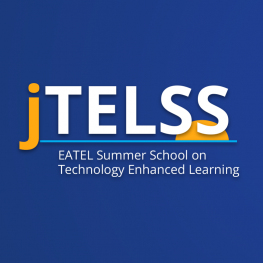Speakers
Vilma Sukackė
Kaunas University of Technology, LithuaniaStart
13/05/2024 - 10:30
End
13/05/2024 - 15:30
Computer assisted qualitative and quantitative analysis of qualitative data
Monday 13/05 10:30-12:00h
Workshop Space A
—–
Monday 13/05 14:00-15:30h
Workshop Space A
Needs Analysis
In the academic community, data triangulation is seen as one of the criteria that ensures high quality and robustness of research. This means that researchers have to deal with qualitative data (e.g. text, visual, and audio data) at least to some extent. There exist various software packages for computer assisted analysis of such data, but training opportunities on using them are scarce or costly. The proposed workshop will provide the participants with essential practical skills of using one of the most convenient software packages for qualitative and mixed methods research, namely, MAXQDA. This software is also extremely useful in conducting literature reviews, which is part of every PhD student’s path, so having a tool that can save time and improve reliability of complex theoretical findings (also empirical findings when empirical data is considered) is of essence.
Learning Objectives
After attending the workshop, the participants will be able to:
- Upload different types of data to the software;
- Import and/or create code structure and memos;
- Perform various types of data coding;
- Perform various tasks related to lexical search;
- Generate qualitative and quantitative results;
- Create data visualizations;
- Know further applications of MAXQDA.
Pre-activities
Before attending the workshop, attendees should have at least the basic understanding of the differences between qualitative, quantitative, and mixed method research. They should also download the trial version of the software (preferably no earlier than 1-2 days before the workshop).
Session Description
This workshop includes a short theoretical introduction to the main concepts and essence of qualitative studies and how their process can be approached by using MAXQDA. The remainder of the workshop is purely practical. The lecturer will be demonstrating the functionality and possibilities of the software and the attendees will be following the same steps in practice. Unlike in other workshops, attendees do not have to bring their own datasets as they will be provided with examples of different types of datasets, which they will code, analyse, and visualize. During the workshop, as we try coding, analysing, and visualizing different types of data, attendees will get various tips on research procedures and advice on the needs related to their personal research projects.

